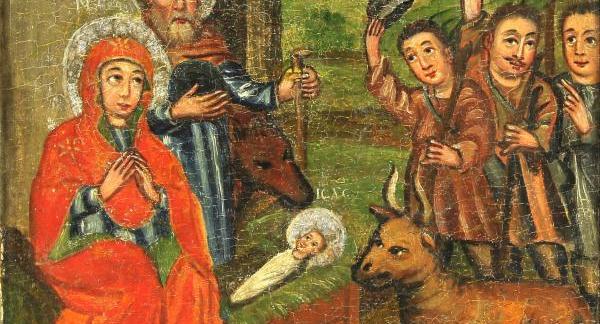I’ve never heard Matthew 15:21-28 preached the way it should be preached.
This is the story of the Canaanite woman, from the region of Tyre and Sidon, who asks Jesus to heal her daughter from demon possession.
Jesus answers her initial request rather rudely, stating that she–as a Gentile Canaanite–fell outside the focus of his mission (which was to “the lost sheep of the house of Israel”). She was, as biblical scholar Elizabeth Wainwright points out, “doubly marginalized,” as both a Gentile and a woman.
And yet there she was “shouting” after them, pressuring Jesus for his attention, on behalf of her stricken daughter. Her response to Jesus’ rebuff was to kneel before him, and appeal once more: “Lord, help me.” He responds yet more strongly (and more rudely), associating her with the dirty Gentile “dogs,” who did not deserve even the crumbs that fell from the table.
You know her response: “Yes, Lord, yet even the dogs eat the crumbs that fall from their masters’ table.”
This was a response of wisdom and crafty perseverance. She had come this far, had gotten a face-to-face with Jesus, and was not about to let him go without getting what she needed from him. But not only was the response crafty, it was also a correction of Jesus’ mis-statement. The Gentiles were not outside the purview of the Kingdom of God. They were not excluded from God’s “household.” Had Jesus momentarily forgotten this? Had his concern for Israel, his own ethnic people, begun to overshadow God’s mission for all people?
This seems to be what Matthew wants to communicate: that this Canaanite woman, who has no name given in the text, corrected Jesus’ misunderstanding or ethnocentric reaction, however momentary it might have been. In other words, she stood Jesus down, and he recognized his error. She taught him a lesson, and he received it as such.
And so he responded, “Woman, great is your faith! Let it be done for you as you wish.”
I’ve heard the sermon preached this way: Jesus is “testing” the woman, seeing if she will persist in the face of Jesus’ rebuff. Will she have faith, in spite of his initial refusal, that he can and will heal her daughter? In this reading, Jesus is the hero of the story, she is the pawn whose job is to express her submission toward Jesus as “Lord,” and to have faith even in the appearance of his denial.
But not only is that reading uninteresting, it also undercuts the transformative power of another reading: one which sees the persistent mother, not Jesus, as the protagonist of the story. She challenges Jesus–and he changes as a result of her challenge. As Wainwright in Shall We Look for Another, explains, in challenging Jesus, the Canaanite woman subverts the readers’ (primarily Jewish communities) expectations of the nature of the kingdom. The kingdom is far more inclusive than they anticipated–and even Jesus (who was fully human, let’s remember) was subject to forgetting that. The reminder came from the margins:
The boundaries of the reign of God movement have been constructed not from within according to the vision of Jesus, but from the margins. Jesus has encountered an ‘outsider’ who brings him, through response to that encounter, to the new vision that is in accord with God’s desiring of right relationships. For those of the Matthean community who now sought to live in the new vision, this story may have been legitimating of the communities they had established. Justa’s [tradition’s name for the woman] multiple marginality—gender, ethnicity, and religious affiliation, to name the obvious—would have continued to challenge such households to ongoing openness to the invitations and encounters that came from those on the boundaries, those whom the community encountered in liminal spaces, the places of new vision. The reading of Jesus would have shaped the visioning of the community’s responses in new situations. (89-90)
This is a pretty good reminder for us today, too, isn’t it?
Stay in the loop! Join the Unsystematic Theology Facebook page













